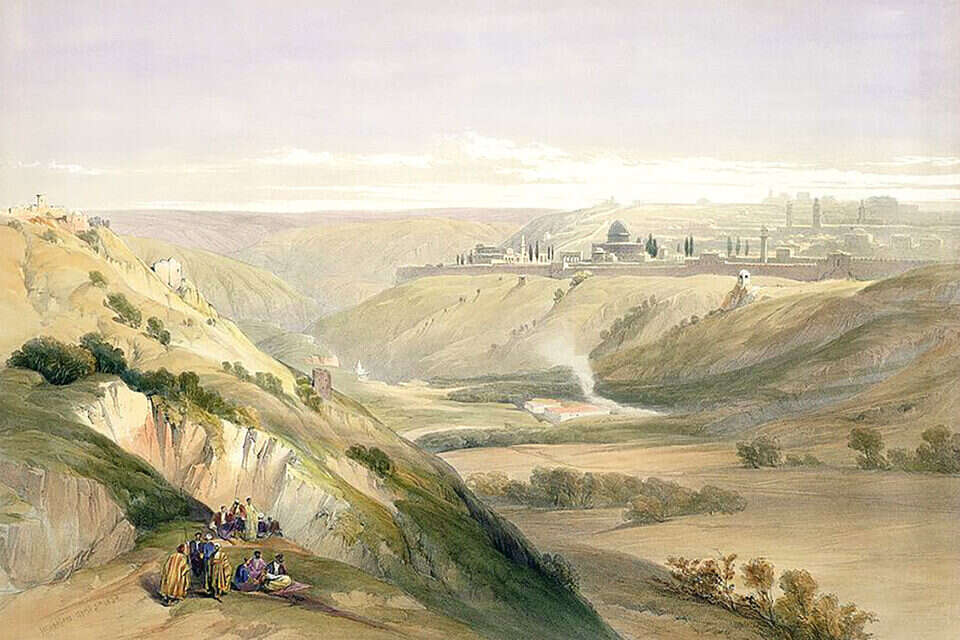1.
And already half of winter has passed and the Tebat rains have made way for the Shebat rains and here is the Christmas festival knocking on our door, when the heat will burn on the plantings that our children will plant in the soil of the good land.
A strange custom has taken root in our country, to eat dried fruit on Tu B'Shvat, and in honor of the holiday, fruit baskets have proliferated in the food chains whose freshness has been taken from them and their life is a past memory. I have heard resentment that most of the dried fruit comes from foreign countries, but there will be no resentment at the very choice to celebrate Rosh Hashanah in fruits that are not fresh.
15 Beshevat is all longing. During the long exile, the longing for the land increased. If the secret of redemption is found in memory, longing is the soul of memory and it ensures that the soul of the people remains connected to their ancient land, that even if we have fled from it, we have not forgotten where we came from and where we want to return .
2.
What happened to our country since we were exiled from it?
Century after century it was emptied of its Jewishness and it remains missed by us.
She slowly sank into a depression that did not grow fruit, and world sadness spread over the good land.
So much so, until in 1867, many centuries after the destruction, when the American author Mark Twain visited Israel, his famous sarcasm and cynicism gave way to a resounding lament: "It seems to me that of all the countries with a depressing landscape, the Land of Israel holds the crown. The hills are bald, faded in color, And their shape is far from mischievous to the eye. The valleys are ugly deserts decorated at their edges with scanty vegetation whose faces seem to say sorrow and despair... This is a bleak, hopeless, broken-hearted land. The Land of Israel sits covered in sackcloth and ashes. A curse lays upon it that has dried up its fields and oppressed her.. The Land of Israel is desolate and ugly... It no longer belongs to this wretched world. It is sacred to poetry and tradition - it is a dream land."
Note the phrase chosen by Twain: "hopeless land".
He may have known and may have thought from his heart, but his words corresponded with the Babylonian exile prophet, Ezekiel ben Buzi.
The Jewish exiles of the first half of the sixth century BCE did not know a historical pattern of exile and redemption, expulsion and return. They looked around them and learned how every nation whose country was destroyed assimilated after a generation or two into the nations to which it exiled, and they drew similar conclusions regarding themselves. Ezekiel Tells about what they said: "Our bones are dry and our hope is lost. We have been decreed for us."
3.
As a true prophet, Ezekiel felt a responsibility towards his people, not only to prove him when necessary, but also to encourage, strengthen failing knees, heal his fallen spirit and look beyond the depressing here and now.
He unfolds before them his vision as he experienced in the visions of the prophecy: a valley full of dry bones of dead people forgotten by the world.
And here the bones bring a woman to her husband and gather sinews and skin and become a body that still lacks a soul.
He prophesies a second time and sees how the wind comes from the four corners of the earth and breathes life into the dead bodies: "And the wind came into them and they lived, and a very great army stood at their feet..."
And I would like to do it. .. and I put my spirit in you and your life and I placed you on your land..."
There is hope for the rest of us, says the prophet.
The historical formula has been fixed ever since the "Covenant between the Batirs", the first covenant made between the first Hebrew and his God regarding the inheritance of the land: we will go into exile ("Know that your seed will be a sojourner in a land not theirs"), we will experience great suffering that will feed us the nations of the world to which we will reach in our exile ("And and torture them"), and then we will leave the house of slaves and return home: "And the fourth generation will return here", and if not in the fourth generation then in the twenty or one hundred and first generation, but in the end, we are guaranteed to return home.
This is what happened in the exodus from Egypt on which we call Shabbat, this is what happened in the return to Zion during the time of Ezra and Nehemiah, and this is what happened in our time.
4.
More than 2,500 years after the vision of Ezekiel's dry bones in Babylon, a Hebrew poet lived in exile in Romania and while corresponding with Ezekiel's vision, he encouraged his contemporaries not to lose hope.
He said that as long as there is a Jewish soul in our heart and our eyes are looking eastward to Zion, our old hope of returning to Israel is not lost.
He composed the first draft back in 1877 and then distributed it in the first aliyah colonies.
A year later, and 11 years after Twain's journey, Petah Tikva arose, whose pioneers created a crack in the dormant national consciousness of the people and proved to everyone that it is possible to live an independent life in the ancient homeland and enjoy the fruits of our labor, and "the land is very, very good."
And if we believe in her ability to rise again and be faithful to her, she will love us back and bloom again.
And perhaps this is the reason why they choose to mark the 15th of Shevat with dried fruits: a reminder of the desolation of the land during the exile, a reminder of the dry bones we were but a moment ago in historical terms. But it is just as important to remember the correction: with the return of the Jews to Zion, the desolate land began to be covered again with greenery and trees , and beautiful fruits grew and rose from her soil, like a mother who kept her milk for her children, like a woman who waited for her beloved for generations.
5.
A chapter before the vision of the bones, Ezekiel gives signs of how we will know that the end of the exile has come: "And ye mountains of Israel, let your arms be bowed down, and your branches be lifted up for the people of Israel, for they have drawn near to him..." At the beginning of the fourth century, the aforementioned Rabbi Abba immigrated to Israel, despite the opposition of many of his surroundings to this immigration.
He saw in Ezekiel's description a clear sign of the redemption of the people and the land: "There is no end to your exile from this," it was mentioned in his name in the Sanhedrin treatise.
Varshi interpreted from the depths of the French exile in the 11th century: "When you give the land of Israel fertile with a good eye, then the end will come - and you will not end more than an exile."
That's why, on the upcoming Tu Beshvet, next to the dried fruits that remind us of the exile, we should add fresh fruits to the holiday table, from the harvest of our country to be proud of. It is important that we support our farmers and Israeli agriculture, even at a higher price. The Land of Israel is worth the price. This is how we hold on to the good land And we promise no more exile.
Later, I would like to do so.
10 in a happy tribe.
were we wrong
We will fix it!
If you found an error in the article, we would appreciate it if you shared it with us









